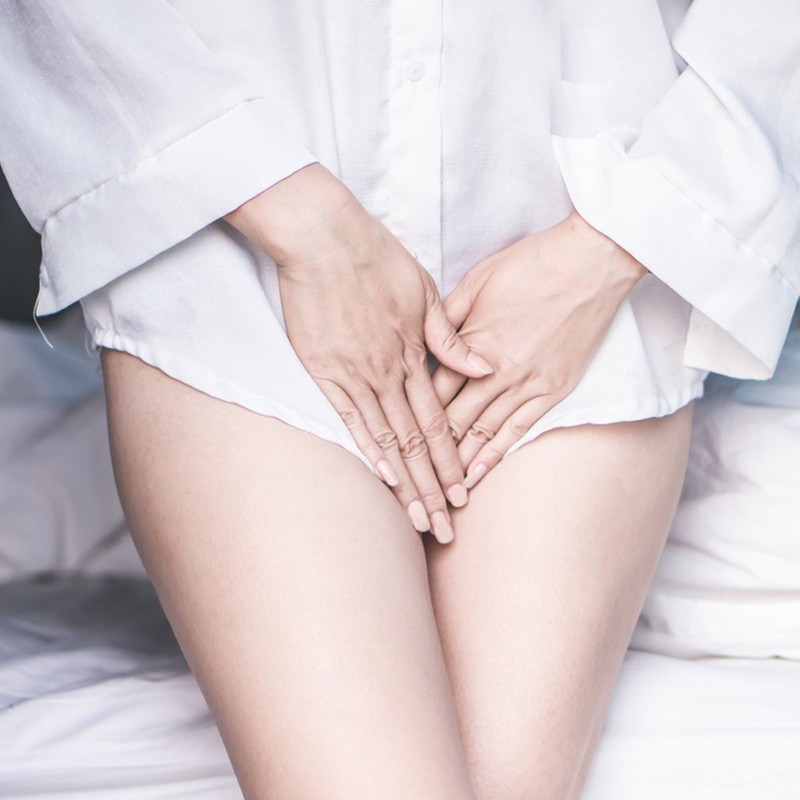
Debunking The Myths About Thrush
CREATED IN PARTNERSHIP WITH CANESTEN
MYTH: Heavy discharge is a classic symptom.
FACT: An odourless, white vaginal discharge, sometimes described as having a texture similar to cottage cheese, is a key sign of thrush. However, other symptoms include an itching or burning sensation around the vaginal opening and possibly on the labia. “Some women also experience pain on passing urine or superficially during sex,” Tara says. “However, everyone is different and not all women experience thrush in the same way. It may also change each time you get thrush.” Sores in your vaginal area and cracked skin around the vulva also aren’t uncommon.
MYTH: It’s linked to your hormones.
FACT: Thrush occurs when there’s an overgrowth of the otherwise normal vaginal fungus called candida albicans. However, this delicate balance can be altered if your oestrogen levels are on the higher end of the spectrum, which explains why you’re more prone to thrush when taking the combined contraceptive pill, for example. And while pregnant women can be prone to thrush, Tara says it’s important to remember it’s not dangerous to your baby.** “It’s always best to see your GP if you are pregnant to rule out a more serious infection, but treatment for thrush itself is straight-forward. The common oral tablet, fluconazole, however, shouldn’t be taken during pregnancy, so it’s best to chat to your GP about treatment options.” Always talk to your doctor or pharmacist before taking any medicine in pregnancy.
MYTH: It’s triggered by having sex.
FACT: As Tara explains: “Thrush is not a sexually transmitted infection (STI) and you can get it even if you’re aren’t having sex. However, it can be triggered by having sex. If this is a problem for you, try to pee after sex or wash with water and then dry the area thoroughly. It’s also best to avoid lubricants that aren’t medically recommended or pH balanced.” If you do have thrush, you may find sex uncomfortable so it’s best avoided until your symptoms have passed. “Just remember that thrush can look and feel similar to other more serious STIs – always see a doctor if you have a green or yellow discharge, notice a strong smell or feel pain in the lower abdomen.”
MYTH: Stress can cause thrush.
FACT: The jury’s out, although an increasing number of studies suggest burning the candle at both ends could put you at an increased risk. “There’s no clear evidence stress causes thrush, but it’s highly plausible that it’s a contributing factor,” Tara says. “Severe or chronic stress can cause a negative effect on your immune system and therefore increase your chance of thrush. High levels of cortisol seen in stress can also increase your blood sugar, which yeast thrives on.”
MYTH: You can prevent it from happening again.
FACT: A yeast infection will affect 75% of women at least once in their lives, and for 6% of women, it’s a regularly unwelcome guest. If you’re plagued by recurrent thrush, there are steps you can take to lessen your chances of repeated cases. “As the thrush fungus is particularly suited to warm environments, avoid wearing gym leggings or tights, which are both made from synthetic materials, for long periods of time. For the same reason, try to wear cotton underwear and never wear underwear at night. Only use water to wash the vaginal area and avoid scented soaps, moisturisers and deodorants – ideally, look for products that are pH balanced and specifically designed for feminine use,” Tara advises. If you keep getting thrush or have more than two episodes in six months, see your GP.
MYTH: Eating yoghurt can stop you getting a yeast infection.
FACT: A common misconception is that regularly downing probiotic-packed yoghurt – and even inserting it into the vagina – can keep things in check, but there’s no scientific evidence beyond the claim. “This is a common old wives’ tale,” says Tara. “It’s definitely not advised to use yoghurt inside the vagina as the sugar in certain products can actually make the problem worse.” However, experts do say that taking a probiotic supplement and increasing your intake of probiotic-rich foods could help maintain intimate health and reduce your chances of getting thrush.
MYTH: It doesn’t always need treatment.
FACT: As Tara explains, thrush is unlikely to resolve on its own and usually some form of medication is needed. “This can either be a tablet to swallow or a tablet (pessary) or cream to insert into the vagina. A cream can also be applied externally to reduce itchiness. Symptoms should improve within a week. It’s best to see your GP the first time you suspect thrush, just to confirm it. Once you are aware of your symptoms, all treatments can be found in your local pharmacy and don’t require a prescription.”
Although it can be uncomfortable, the good news is that mild and moderate thrush can be easily treated with Canesten’s range of products, none of which require a prescription. Don’t forget, you can use a combination treatment to treat both the internal infection and calm the external symptoms, like itching. These are the products that can help…
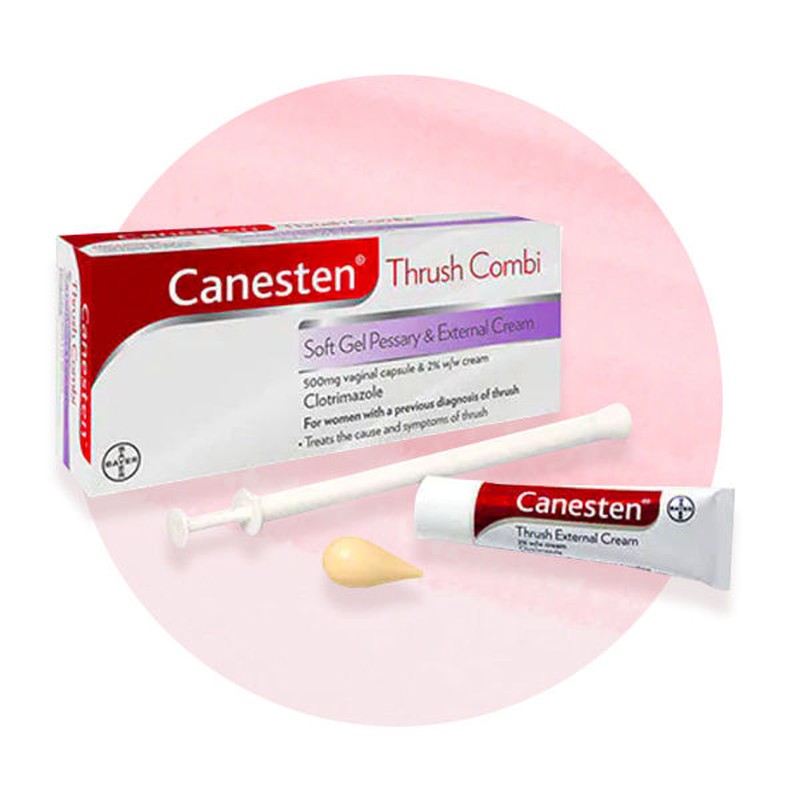
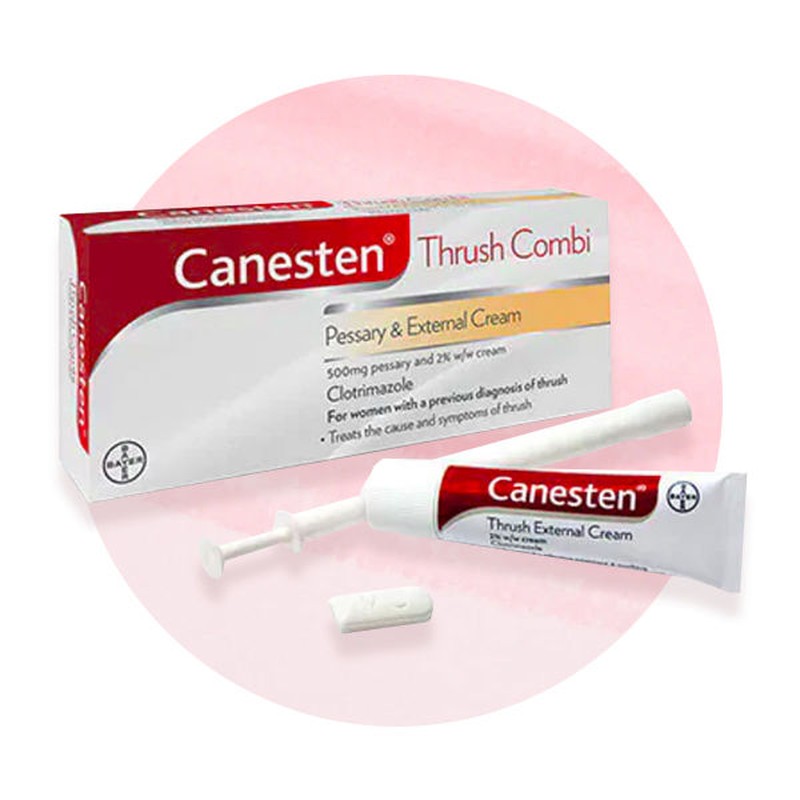
Thrush Combi Pessary & External Cream
With a traditional pessary and cream, this classic combination pack will relieve irritating symptoms and clear thrush within a few days.
Available here
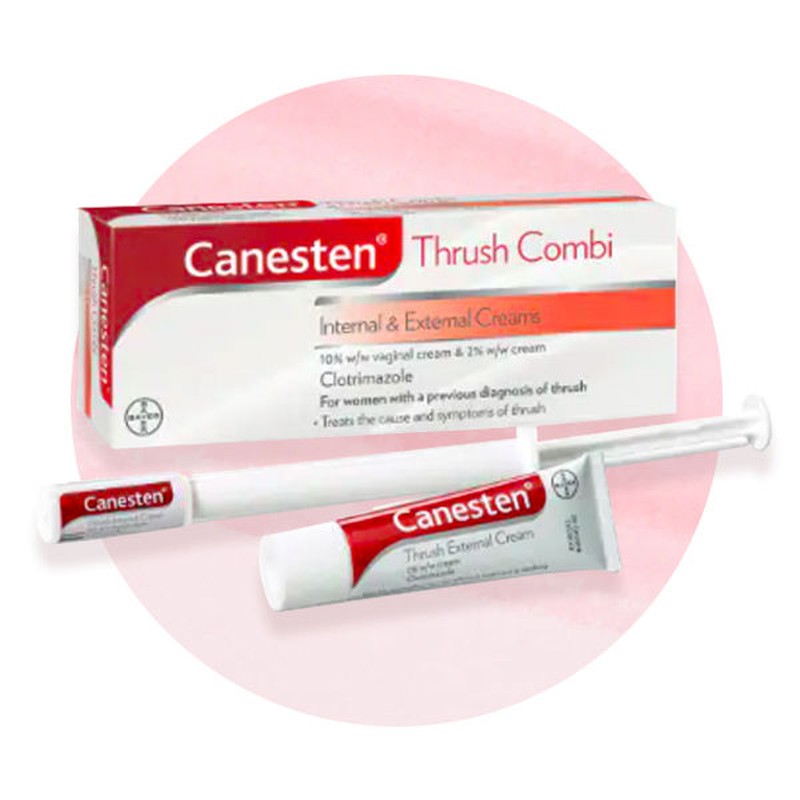
Thrush Combi Internal & External Creams
If you don’t feel comfortable using a pessary, try this single-dose internal cream, which comes in an easy-to-use applicator.
Available here
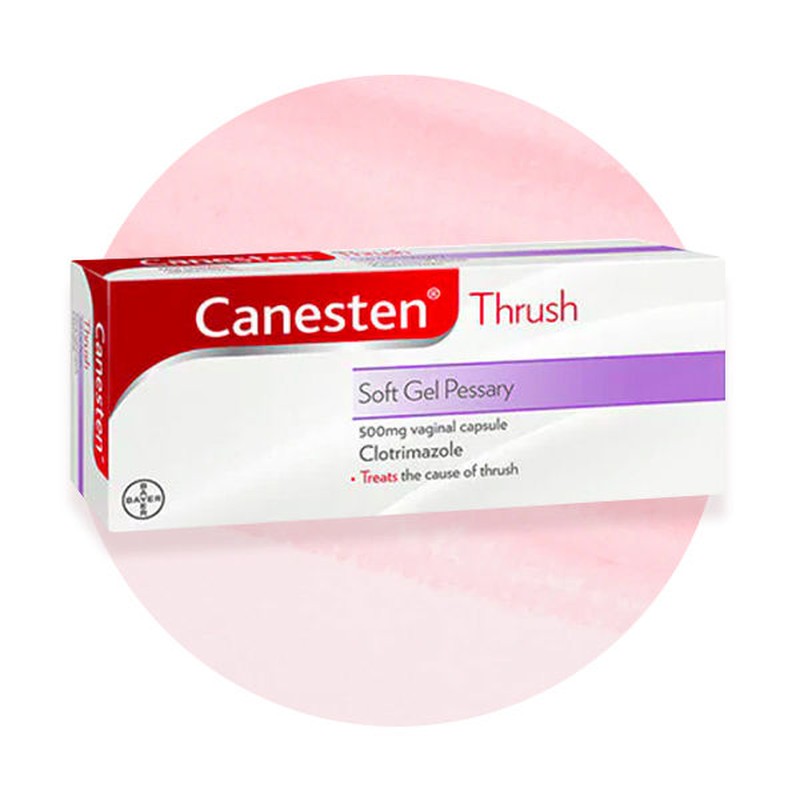
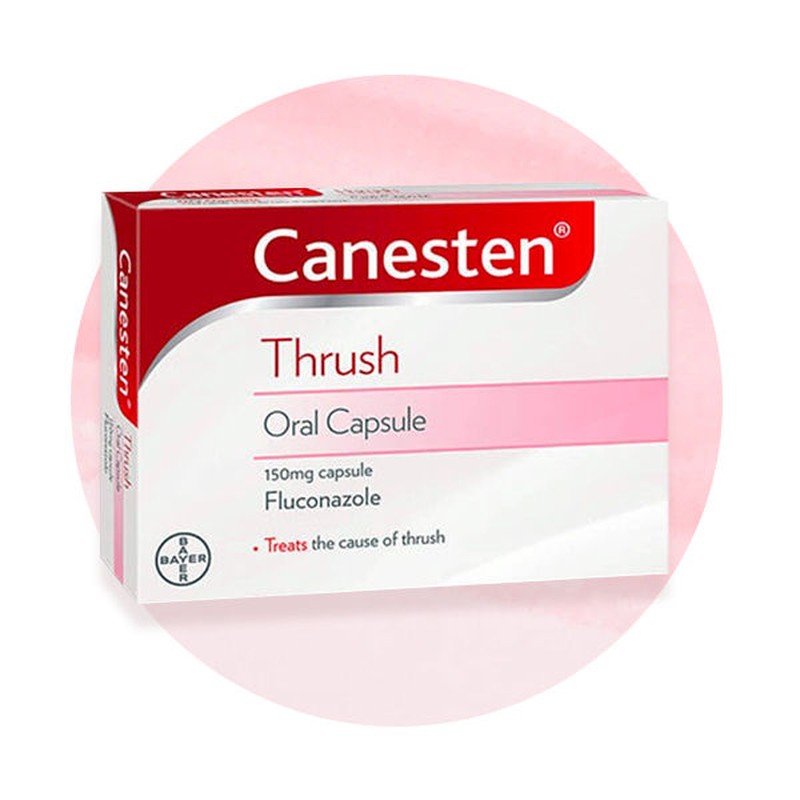
Thrush Oral Capsule
Just one dose of this oral treatment will stop a pesky infection in its tracks. Your male partner can also use this treatment if he’s suffering too. Do not use this product if you are pregnant, trying for a baby or breastfeeding.
Available here
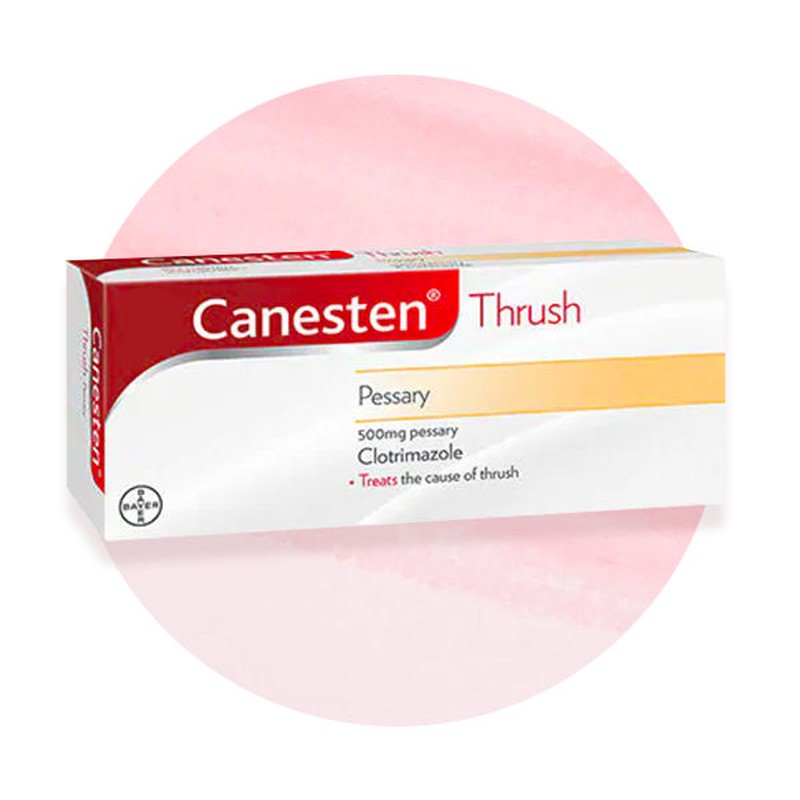
Thrush Pessary
Containing clotrimazole, this formula works by killing the yeast that causes a fungal infection.
Available here
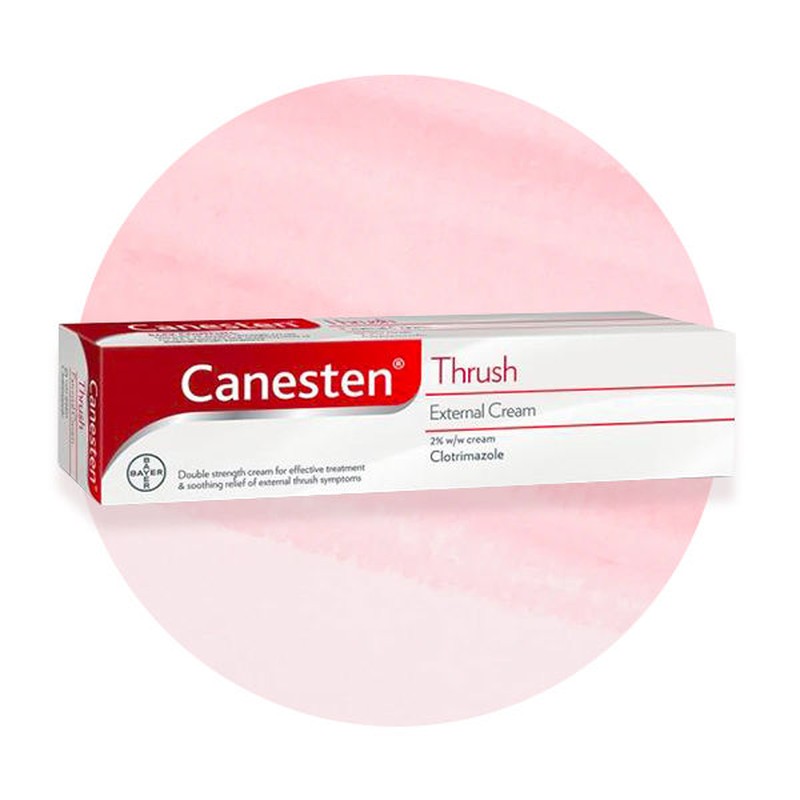
Thrush External Cream
Providing relief from the external symptoms of thrush, such as itchiness and soreness, this cream can be applied throughout the day.
Available here
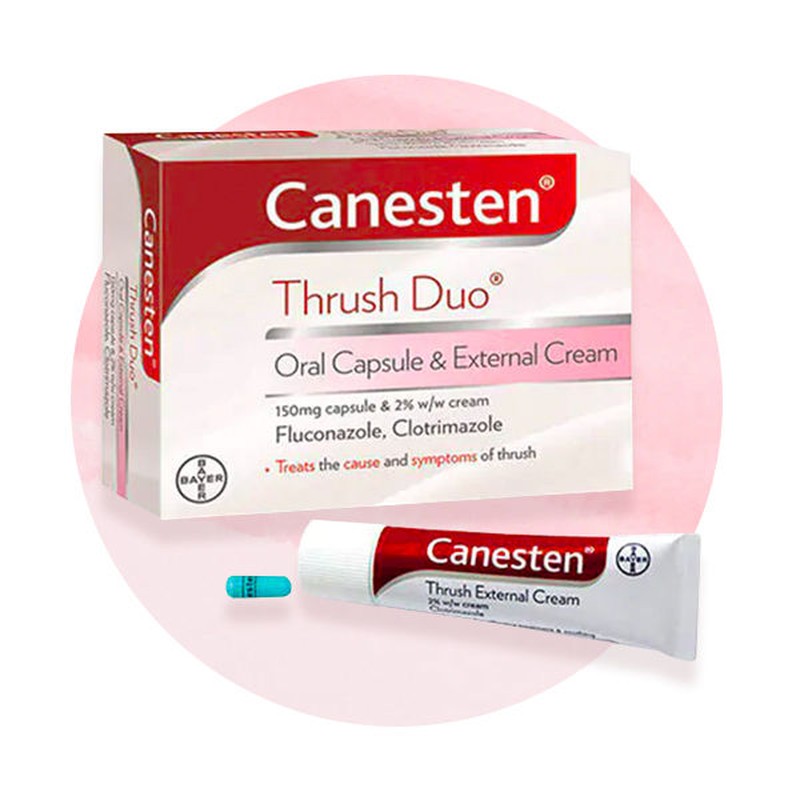
Thrush Oral Capsule & External Cream
A convenient way to calm the itch and clear the infection, this is an on-the-go treatment. Do not use this product if you are pregnant, trying for a baby or breastfeeding.
Available here
Visit Canesten.co.uk
DISCLAIMER: Features published by SheerLuxe are not intended to treat, diagnose, cure or prevent any disease. Always seek the advice of your GP or another qualified healthcare provider for any questions you have regarding a medical condition. The following Canesten products contain Clotrimazole: Canesten Thrush Combi Soft Gel Pessary & External Cream, Canesten Thrush Combi Pessary & External Cream, Canesten Thrush Combi Internal & External Creams, Canesten Thrush Soft Gel Pessary, Thrush Pessary and Thrush External Cream. Canesten Thrush Oral Capsule contains Fluconazole and Canesten Thrush Oral Capsule & External Cream contains Clotrimazole and Fluconazole. Always read the label.
*According to NCBI research.
**Dr. Tara Hughes does not endorse any medicinal product or treatment.
***Dr. Tara Hughes has not endorsed Canesten products.
CREDITS: ISOCK / DOUCEFLEUR
DISCLAIMER: We endeavour to always credit the correct original source of every image we use. If you think a credit may be incorrect, please contact us at info@sheerluxe.com.

